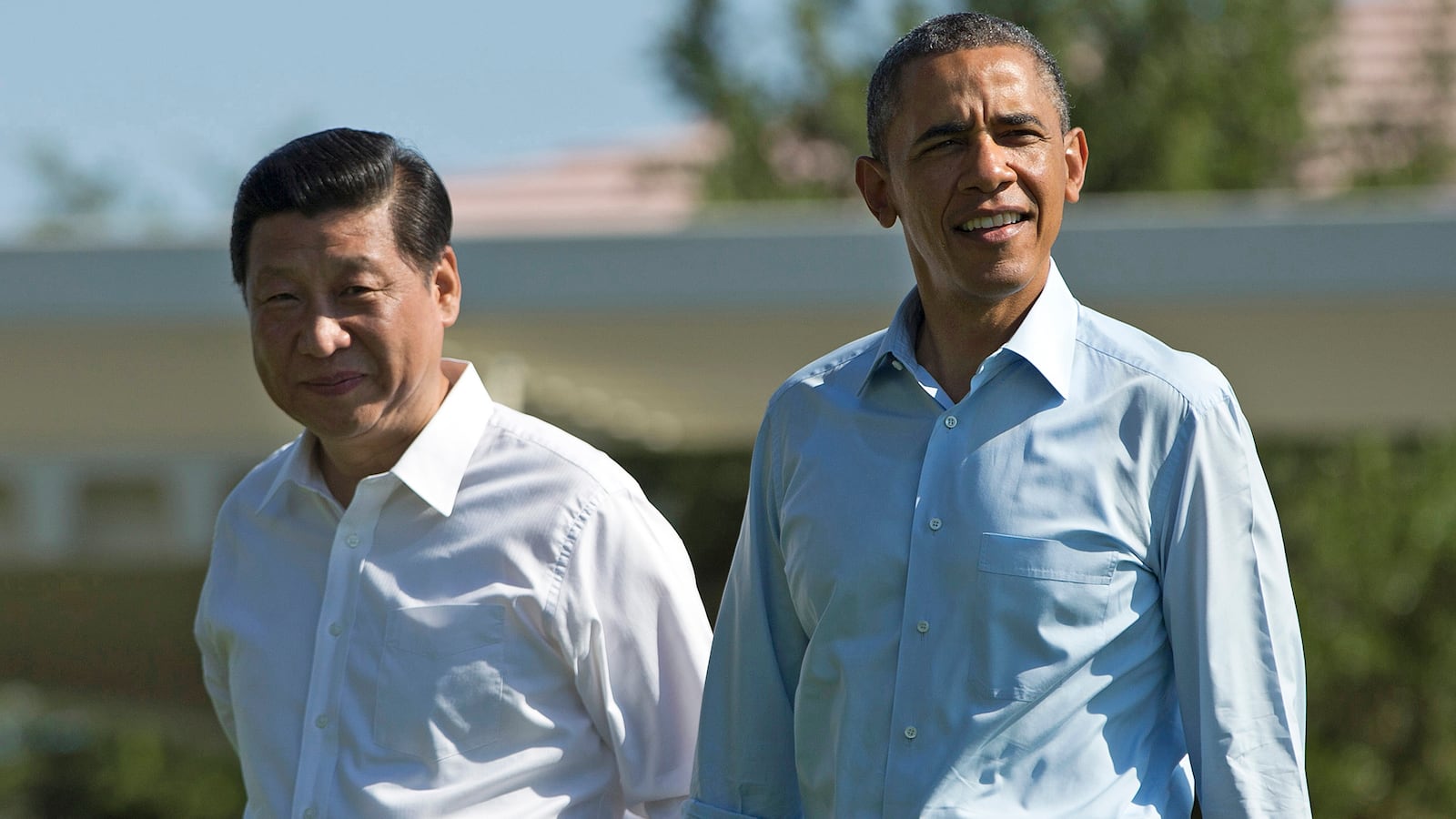Have we just witnessed the birth of a “new type of great-power relationship”?

That’s one of the buzz phrases of Chinese supremo Xi Jinping, who has just wrapped up two days of relatively informal meetings with President Obama at the Annenberg estate in Rancho Mirage, California. It is not remarkable that Xi used the phrase—it’s one of his favorites—but it is notable that the American leader adopted it as well, mentioning “this new model of relations between the United States and China.”
So what is this new model? Obama administration officials, in the run-up to the just-concluded gathering, were wondering what Xi was trying to accomplish with his flashy language. Optimistic Americans hoped he was referring to a “reset” without using that now derided word. As Patrick Brown of the Canadian Broadcasting Corp. reported, “According to the script being enthusiastically pitched by Washington, the U.S. and China are on the verge of a Fresh Start.”
At first glance, it does seem that we need a new beginning. Ties between the two countries have been strained in recent months with, among other things, revelations of Chinese cyberattacks and cyberespionage, the forcible taking of Philippine shoals, intrusions into Japanese-controlled waters and airspace, and attempts to close off the South China Sea, long thought to be international domain.
Yet Beijing ending its aggressive acts may not have been what Xi actually had in mind. More likely he was thinking that the “new model” of relationship meant that Washington would recognize Chinese prerogatives and keep quiet about its concerns. That’s the subtext for another one of Xi’s recent phrases, the “new China dream,” a vision of the Communist Party leading a strong and revitalized country. As Zhang Lifan, a Communist Party historian, said about the Chinese leader, “He is falling back on nationalism, talking about making China the No. 1 superpower of the world.”
Even after two days of informal meetings at the “summit with a small ‘s,’” it’s not clear that Xi in fact revealed his thinking. His comments after the first day of talks were particularly thick and flowery, and on many levels that’s not a good sign. The U.S. and China cannot develop a new model of relations—or at least a cooperative one—unless they can have frank conversations. From the look of things in Rancho Mirage, it doesn’t look like they are at that stage yet.
America has serious issues with China, and Beijing needs to show progress now, not sometime in the indefinite future. Therefore, it would have been better that disputes had been aired at this meeting, in public as well as private. Too often Washington has delayed having honest conversations with China, and Obama was, on some issues, much too polite. For instance, Friday evening, when he and Xi took questions from the press, the American leader could not bring himself to accuse China of clearly inexcusable conduct, saying that he could speak only “at the 40,000-foot level” and that America and China were in “uncharted waters.” Obama even sounded as if he were making excuses for China when he said the two countries lacked “protocols.”
It is the cyber issue that best shows that American policymakers, administration in and administration out, have lost their way when it comes to China’s challenges to the U.S. In connection with the planning for the Rancho Mirage summit, the White House convinced China to hold regular talks on cyber matters. On Friday evening, Xi, answering a question from an American reporter, said, “I’m happy to learn that within the context of the China-U.S. strategic and economic dialogue, a working group has been established to discuss cybersecurity issues.”
You bet he is. As Washington and Beijing “discuss” the matter, Chinese hackers will continue predatory behavior. American officials have been increasingly talking about the $250 billion that U.S. companies lose each year to cybertheft of intellectual property. That’s in addition to the $140 billion annually lost through “common” cybercrime. Not all the losses are to China, of course, but Chinese hackers are responsible for most of the larger figure.
Administration officials, according to The New York Times, say they do not expect that the new talks will result in an immediate and significant reduction in Chinese attacks. So what is their purpose? The president in his first term had numerous conversations with the Chinese, but the attacks increased dramatically in the middle of last year. This year Treasury Secretary Jack Lew, Secretary of State John Kerry, and Joint Chiefs of Staff chairman Martin Dempsey all have traveled to Beijing to discuss the issue. Despite their persistent effort to establish a cooperative relationship, the People’s Liberation Army ramped up its cyberactivities sometime around the beginning of April.
Cyberattacks and cyberespionage, according to Director of National Intelligence James Clapper, now constitute America’s No. 1 security threat, and according to Gen. Keith Alexander, head of the U.S. Cyber Command, cyberattacks on U.S. companies have resulted in the “greatest transfer of wealth in history.”
This means the ultimate test of the discussions with Xi Jinping will be what China does in the weeks ahead to reduce its assault on American networks. If there is indeed a “new model” we can accept, that will be the best evidence of it.





